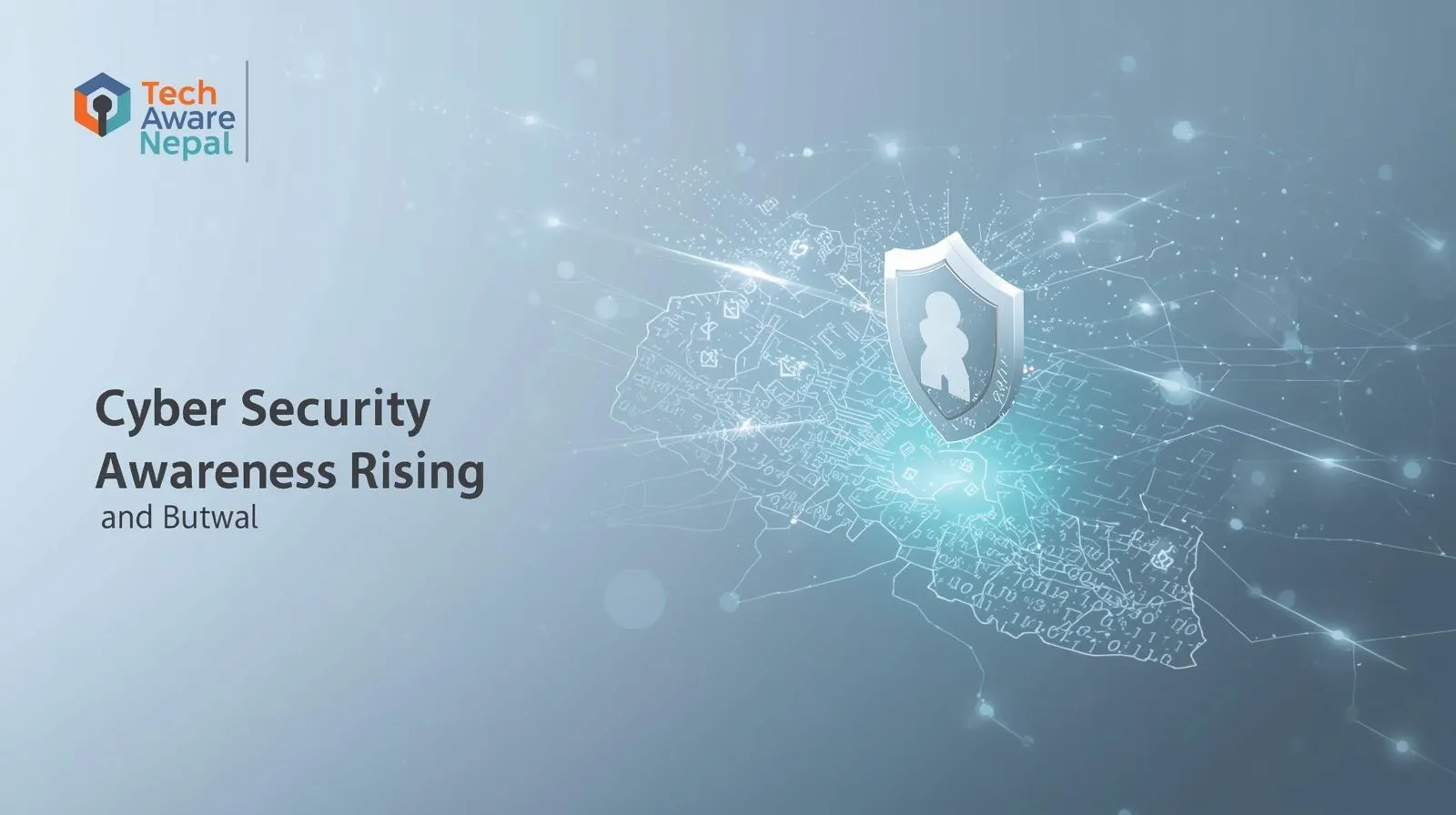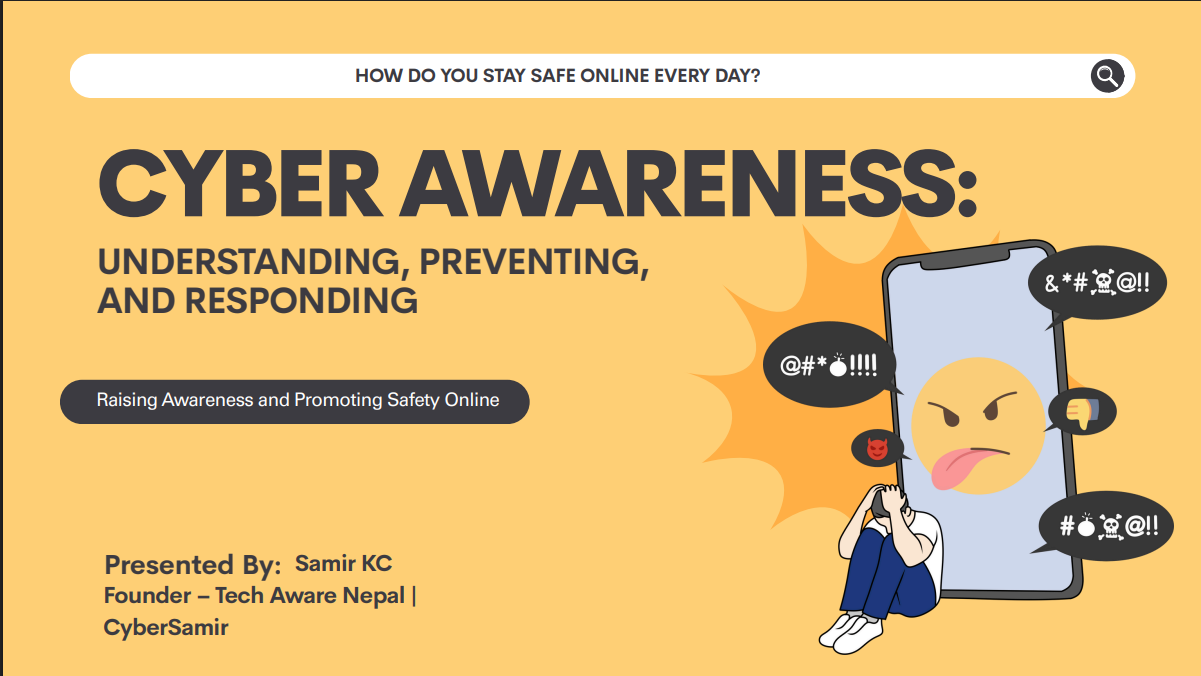
Image showing a cybersecurity awareness seminar or campaign in Butwal, Nepal, promoting digital safety among citizens.
BUTWAL, September 13, 2025 – As Nepal accelerates its journey into the digital age, a new, invisible frontline has emerged. From the bustling commercial hubs of Kathmandu to the rapidly expanding cities of the Terai, the nation is waking up to a stark reality: with greater connectivity comes greater risk. The rise of cyber threats, ranging from sophisticated financial scams to widespread data breaches, is forcing a crucial, nationwide conversation about cybersecurity, and nowhere is this growing awareness more palpable than in burgeoning economic centers like Butwal.
For years, cybersecurity was a topic relegated to the IT departments of large banks in the capital. Today, it has become a kitchen-table conversation. The increasing reliance on digital payment systems like eSewa and Khalti, the boom in e-commerce, and the pervasive use of social media have made every citizen a potential target, creating an urgent need for digital literacy and defense.
The National Picture: A Nation Under Siege
At the national level, the Nepal Police’s Cyber Bureau is inundated. Reports of phishing scams targeting banking customers, social media account hijackings for ransom, and online fraud have surged. High-profile incidents in recent years, including breaches of government websites and data leaks from private companies, have served as a harsh wake-up call.
In response, a multi-faceted awareness effort is taking shape. Government bodies are issuing public service announcements, financial institutions are sending out regular alerts to customers, and a growing number of private cybersecurity firms in Kathmandu are offering services ranging from penetration testing to employee training. Organizations like the Center for Cyber Security Research and Innovation (CSRI) are actively promoting awareness through workshops and conferences, aiming to build a more resilient digital infrastructure for the country.
Butwal: A Microcosm of Nepal’s Digital Transformation
While Kathmandu remains the epicenter of the tech scene, the real story of Nepal’s digital shift is being written in cities like Butwal. As the economic powerhouse of Lumbini Province and a critical hub on the Siddhartha Highway, Butwal’s growth is intrinsically linked to technology. Its businesses, from small retailers to large industrial houses, are adopting digital tools to manage inventory, payments, and marketing.
This rapid digitalization has made Butwal a fertile ground for cybercriminals. Local business owners report an increase in QR code payment scams, while students and young professionals are frequently targeted by social engineering and online job frauds.
However, the city is not taking these threats lying down. A grassroots movement for cybersecurity awareness is gaining momentum:
- Academic Initiatives: Colleges in Butwal, particularly those with IT and management programs, are integrating cybersecurity modules into their curriculum. They are hosting seminars and workshops, inviting experts to educate students on safe online practices.
- Business Community Engagement: Local chambers of commerce and business associations are beginning to organize awareness sessions for their members, focusing on securing digital payment systems and protecting customer data.
- Local Tech Groups: The city’s burgeoning community of IT professionals and developers is playing a crucial role, sharing knowledge through local meetups and social media groups, and offering informal support to victims of cyber fraud.
“A few years ago, if you mentioned ‘cybersecurity’ here, people would think it was just about antivirus software,” says a Butwal-based IT consultant. “Now, business owners are asking about two-factor authentication, phishing protection, and how to secure their Wi-Fi networks. The conversation has matured because the threat has become personal.”
The Road Ahead: Bridging the Awareness Gap
Despite the progress, significant challenges remain. The primary hurdle is the vast awareness gap between the tech-savvy urban youth and the broader population, including the elderly and those in rural areas. Scammers continue to succeed because digital literacy has not kept pace with digital adoption.
For Nepal, and for its rising cities like Butwal, securing the future is a two-pronged effort. It requires robust technical infrastructure and proactive law enforcement at the national level. But more importantly, it depends on building a resilient, educated, and vigilant citizenry. The rise of cybersecurity awareness is the first, most critical step in defending Nepal’s digital frontier.





